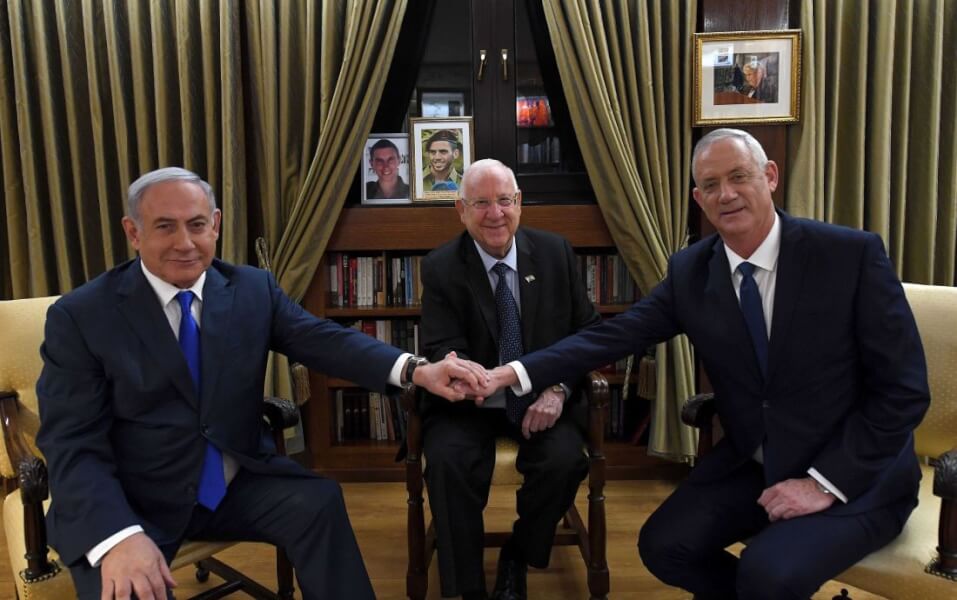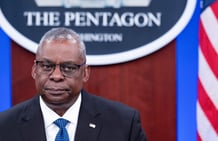Yohanan Plesner, director of the Israeli Democracy Institute, now has a “democratic ceasefire” between Benjamin Netanyahu and Benny Gantz. After weeks of negotiations, the two politicians agreed to form a unified government in Israel. Netanyahu is to serve as prime minister for the first half of the three-year coalition term, after which Gantz is to take over this position. This resolves the political stalemate after three elections that did not result in a clear majority for a camp.
In Plesner’s view, the fact that the incumbent prime minister and the opposition leader do not really dare to cross the path shows the mutual veto opportunities that have been incorporated in many places in the 14-page agreement. Several clauses ensure that the rotation will actually take place and that Netanyahu will leave the position of prime minister after one and a half years. For this purpose, Netanyahu and his family can continue to live in the official residence, which is actually reserved for heads of government.
Even if Netanyahu prevailed on most points, Gantz, according to Plesner, prevented worse things: “Gantz had to choose: compromises or a fourth choice.” Anti-democratic laws such as the plan that only loyal cultural institutions should receive state subsidies, or Netanyahu’s right of direct access to the appointment of judges were prevented.
Braking Netanyahu’s influence should also contribute to personnel decisions that Gantz was able to enforce. The Ministry of Defense manages Gantz himself. In addition to the field department, the Ministry of Justice also has one of his confidants: As Minister, Avi Nissenkorn will “shield the judiciary from external interventions,” Plesner is convinced.
Netanyahu is the first head of government in the country. He is accused of bribery, fraud, and infidelity in three cases, which Netanyahu rejects. With his demand for impunity, he could not prevail. However, if Netanyahu ran and was elected president in the summer of 2021, he would have immunity for the seven-year term. The head of the Democracy Institute assumes that Netanyahu will now have to answer to court as planned. The start of the trial was postponed to May 24 due to the Corona crisis.
The Knesset must agree on a prime minister by May 7
Another petition from civil rights activists came to the Supreme Court on Tuesday to prevent Netanyahu from becoming prime minister despite the corruption charges. Should the court grant this request, the agreement would also require Gantz to approve immediate elections. According to polls, Netanyahu would currently have a chance to win a majority for his right bloc – without Gantz’s support.
By May 7, the Knesset must agree on a prime minister who has two more weeks to build the coalition. It is clear that Netanyahu now receives the necessary support after the agreement with Gantz. At least 71 of the 120 MPs are likely to vote for him after the agreement. In addition to the blue and white party led by Gantz and Netanyahu’s right-wing national Likud, the ultra-orthodox parties Shas and United Torah Judaism are also firmly involved in the coalition. As a concession to the ultra-Orthodox, the previous agreement on the convening of more strictly religious young men for military service is being tempered.
It is still unclear whether Netanyahu’s previous partner, the Jamina party close to the settlers, will continue. The Labor Party, which is to receive two ministerial posts, is also included. Support for Netanyahu has also been announced by Orly Levy-Abekasis. The many parties also claim many positions: with at least 32 ministers, it will be the largest cabinet that has ever ruled in Israel.
The coalition runs for 36 months. Plesner does not dare to predict whether it will last. The first six months are defined as an “emergency period”. During this time, the legislation should be limited to measures to combat the coronavirus – both sides have the right of veto. The only exception is that Netanyahu can begin annexing parts of the West Bank from July. Netanyahu wants to create facts if Donald Trump does not manage to be re-elected president in November. Palestinian politicians are calling for a suspension of cooperation with Israel.














